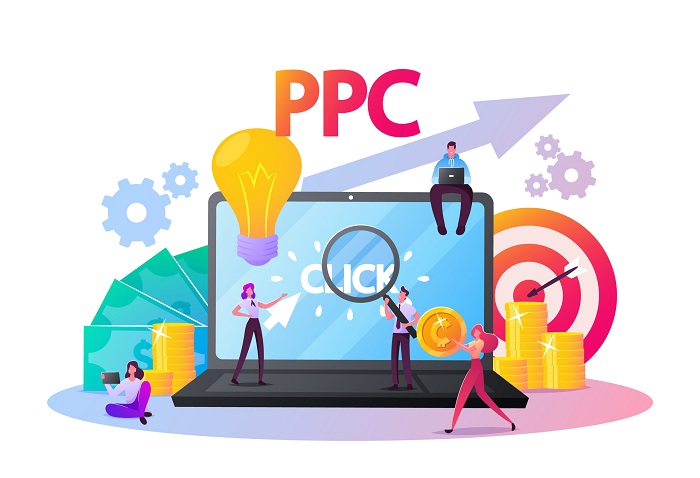
PPC/Search Marketing: What Is It and How It Works
Pay-per-click (PPC) marketing, also known as search marketing, is a method of internet advertising where advertisers pay a fee each time one of their ads is clicked. Essentially, it’s a way of buying visits to your site, rather than attempting to earn those visits organically. PPC marketing is typically associated with search engines like Google and Bing, where advertisers bid on keywords relevant to their target audience. When users search for those keywords, the ads appear in the search results.
What Type of Marketing Is PPC and When Did It Appear?
PPC marketing falls under the umbrella of digital marketing and specifically, search engine marketing (SEM). It focuses on driving traffic to websites through paid advertising rather than through organic search results. The concept of PPC has been around since the late 1990s, with the advent of search engines. Google AdWords, now Google Ads, launched in 2000 and revolutionized PPC by introducing a model where advertisers bid for ad placement in Google’s search results.
The appearance of PPC marketing can be traced back to the rise of the internet and the evolution of online search. Initially, search engines served as directories, but as the internet grew, there was a need for a more efficient way to connect users with relevant content. This gave birth to search engines that indexed pages and allowed for keyword-based searches, paving the way for keyword-based advertising models like PPC.
How Does PPC Work?
PPC operates on a bidding system where advertisers compete for ad placements based on keywords. Advertisers identify keywords relevant to their products or services and create ads around those keywords. When users enter those keywords into a search engine, the PPC ads may appear in the search results. The placement of the ads is determined by a combination of the advertiser’s bid amount and the quality score, which measures the relevance and usefulness of the ad.
Once the ad is clicked, the advertiser is charged a fee, hence the term pay-per-click. The goal is to drive users to the advertiser’s website where they can take a desired action, such as making a purchase or filling out a contact form. Effective PPC campaigns require ongoing monitoring and optimization to ensure that ads are performing well and providing a good return on investment.
Advice for Effective PPC Campaigns
To run a successful PPC campaign, it’s crucial to conduct thorough keyword research. Identify high-value keywords that your target audience is likely to use. Utilize tools like Google Keyword Planner to find relevant keywords and estimate their performance.
Next, focus on creating compelling ad copy. Your ads should be clear, concise, and include a strong call-to-action. Highlight the unique selling points of your products or services to entice users to click on your ads.
It’s also important to set a realistic budget and manage your bids effectively. Start with a conservative budget and adjust it based on the performance of your campaigns. Use A/B testing to experiment with different ad copies and landing pages to find out what works best for your audience.
How Promising is PPC Marketing Today?
In today’s digital landscape, PPC marketing remains highly effective and relevant. With the increasing use of search engines, mobile devices, and social media platforms, PPC offers businesses a powerful tool to reach their target audience. It provides immediate results and is highly measurable, allowing businesses to track their return on investment and adjust their strategies accordingly.
PPC marketing is also scalable. Whether you’re a small business or a large corporation, you can tailor your PPC campaigns to fit your budget and goals. The flexibility and adaptability of PPC make it a valuable component of any digital marketing strategy.

Future Trends in PPC Marketing
Looking ahead, PPC marketing is expected to continue evolving with advancements in technology. Automation and artificial intelligence (AI) are becoming more integrated into PPC platforms, enabling more efficient and effective campaign management. AI can help optimize bids, target audiences more accurately, and create more personalized ads.
Additionally, the rise of voice search and smart devices is likely to influence PPC strategies. As more users rely on voice assistants to perform searches, PPC campaigns will need to adapt to these new search behaviors.
PPC marketing is a dynamic and powerful tool for driving traffic and generating leads. By understanding how it works and implementing best practices, businesses can harness the full potential of PPC to achieve their marketing goals. As technology continues to advance, staying up-to-date with the latest trends and innovations in PPC will be crucial for maintaining a competitive edge.



